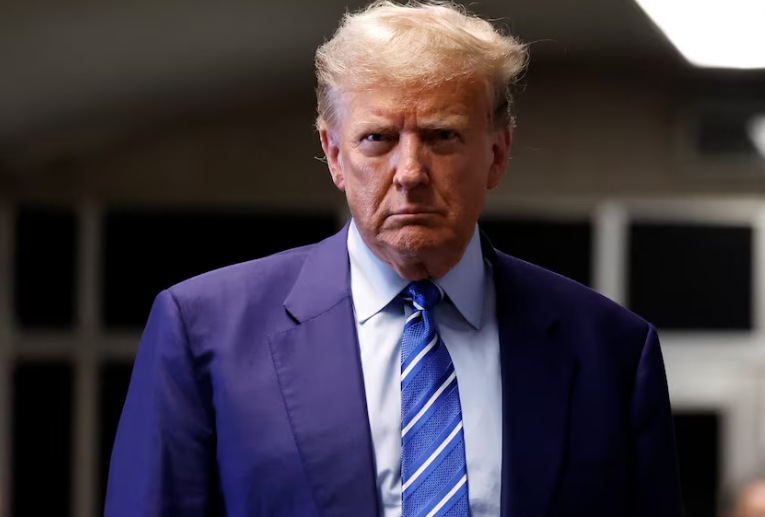The Trump administration’s recent executive order directing the Department of Justice (DOJ) to halt new investigations and enforcement actions under the Foreign Corrupt Practices Act (FCPA) has ignited a legal and policy debate over the United States’ commitment to combatting international corruption.
The order freezes current enforcement efforts and mandates a review of existing cases, a move that could significantly alter the landscape of corporate accountability and international business ethics.
This article explores the legal, diplomatic, and economic ramifications of pausing FCPA prosecutions, the potential conflicts with international anti-bribery agreements, and the broader implications for the rule of law.
Understanding the FCPA: A Pillar of Anti-Bribery Enforcement
Enacted in 1977, the Foreign Corrupt Practices Act (FCPA) criminalizes the bribery of foreign officials by U.S. individuals and entities seeking to secure or retain business. The law applies not only to American companies and their executives but also to foreign firms listed on U.S. stock exchanges or engaged in business within the country.
FCPA enforcement has historically played a critical role in global anti-corruption efforts, with U.S. authorities frequently prosecuting corporations for bribery-related misconduct. The law has been a model for anti-bribery statutes in other nations, such as the UK Bribery Act of 2010 and the OECD Anti-Bribery Convention.
The Executive Order: A Legal and Policy Shift
The Trump administration’s executive order halts FCPA enforcement under three primary directives:
- New Investigations and Prosecutions: The DOJ is to cease initiating new FCPA cases at the Attorney General’s discretion.
- Review of Existing Cases: Ongoing FCPA investigations and enforcements will be reassessed.
- Policy Revisions: The administration will introduce new guidelines prioritizing the President’s Article II foreign affairs authority, potentially limiting U.S. intervention in global business corruption cases.
Legal Justifications Cited in the Order
The executive order argues that the FCPA has been “stretched beyond proper bounds” and unfairly punishes U.S. businesses for engaging in what are routine practices in other nations. It suggests that aggressive FCPA enforcement harms U.S. interests by creating a competitive disadvantage for American companies operating in countries where bribery is an entrenched norm.
Potential Conflicts with International Law
By pausing FCPA prosecutions, the U.S. risks violating its commitments under several international anti-corruption treaties, including:
- United Nations Convention Against Corruption (UNCAC): Under Article 16, the U.S. is obligated to criminalize bribery of foreign public officials.
- OECD Anti-Bribery Convention: The Organization for Economic Cooperation and Development (OECD) has consistently emphasized that signatory states, including the U.S., must take proactive measures to enforce anti-bribery laws.
A failure to comply with these obligations could damage the U.S.’s credibility in global anti-corruption initiatives and invite diplomatic consequences.
Impact on Corporate Compliance and Business Ethics
Corporate Compliance Programs at Risk
Many multinational corporations have invested heavily in FCPA compliance programs, creating internal controls to prevent and detect bribery. The pause on prosecutions may lead some companies to deprioritize compliance efforts, increasing the risk of fraud and unethical business practices.
Uncertain Legal Landscape for Businesses
With no clear enforcement mechanism, businesses may find themselves navigating a legal gray area. While some may interpret the order as a green light for engaging in bribery, others may remain cautious due to the risk of future policy reversals under a different administration.
Declining FCPA Enforcement: A Long-Term Trend?
Data from the DOJ highlights a significant decline in FCPA enforcement actions over the past five years:
- 2019: 65 cases
- 2020: 39 cases
- 2021: 30 cases
- 2022: 23 cases
- 2023: 17 cases
- 2024: 24 cases (before the executive order)
A report by Transparency International indicated that U.S. enforcement of foreign anti-bribery laws began to decline in 2020 and dropped sharply in 2021, with penalties falling from $7.13 billion in 2020 to $461 million in 2021.
The executive order further accelerates this trend, raising concerns about whether the U.S. is abandoning its leadership in global anti-corruption efforts.
Legal and Political Backlash
Criticism from Anti-Corruption Experts
Richard Nephew, a former anti-corruption coordinator at the U.S. Department of State, described the executive order as a “horrible idea,” warning that “the United States should not try to outcompete bad guys in bribery.”
In September 2024, a group of legal scholars criticized the U.S. for a perceived “double standard” in FCPA enforcement, noting that while American companies are often prosecuted, foreign corporations with U.S. ties have faced fewer consequences.
Potential Congressional Challenges
While the DOJ enforces the FCPA, Congress retains the power to amend the statute or push for oversight hearings. Lawmakers who oppose the order may introduce legislation reaffirming U.S. anti-bribery commitments or challenge the executive branch’s authority to suspend law enforcement unilaterally.
What Happens Next?
- Legal Challenges: Advocacy groups or state attorneys general could challenge the executive order in court, arguing that the President lacks the authority to halt enforcement of a federally enacted law without Congressional approval.
- Congressional Oversight: Lawmakers may hold hearings to scrutinize the decision and evaluate its impact on international business and corruption enforcement.
- Policy Reversals: A future administration could reinstate strict FCPA enforcement, creating uncertainty for corporations navigating compliance obligations.
Conclusion
The Trump administration’s decision to pause FCPA investigations and prosecutions marks a pivotal shift in U.S. anti-corruption policy. While framed as a move to protect American businesses from unfair global standards, the order raises serious legal, diplomatic, and ethical concerns.
By halting enforcement of a landmark anti-bribery law, the U.S. risks undermining its international obligations, weakening corporate compliance efforts, and sending a signal that corruption may be tolerated under the guise of competitive advantage.
As legal battles and policy debates unfold, the long-term consequences of this executive order remain uncertain—but potentially far-reaching.

